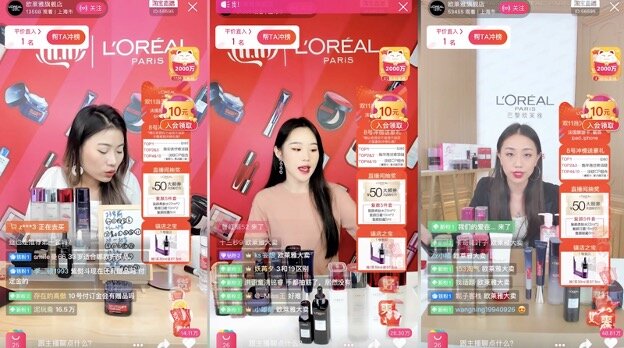Much is written every year about the success of Alibaba’s flagship festival Singles’ Day on November 11. Marketers are bombarded with huge GMV numbers, and countless overwhelming success stories of brands selling huge volumes in a tiny sales window.
Faced with this tidal wave of positivity, surely as long as a brand can get live in time, it’s a guaranteed cash cow?
Not necessarily. Below the Hot Pot team examine six strategies that will guarantee to have you screwing up Singles’ Day in a big way (as well as how to get it right).
1) Blindly discount your full range and pin all your revenue hopes on Singles’ Day
How to screw it up:
From new market entrants to mature market leaders, too many brands are relying on 11.11 to realise short-term revenue objectives for China.
Given the scale and ever-increasing hype, launching your brand in China in time for 11.11 looks irresistible. It is a dangerous play. Without brand power, and in order to drive traffic and conversion, you will be sucked into high channel investment and aggressive discounting. This undermines your profitability and crucially, your credibility before you’ve even started the race.
It seems that even giants like L’Oreal, rightly praised for its excellent 2019 campaign, have become very reliant on 11.11 for achieving their annual sales objectives. The huge spike around November is all too common and as it’s so late in the year, the propensity to mark-down, even hero and best-selling products, becomes all too tempting. For brands with offline business, this can also cause issues if product assortment is not segmented. The ultimate outcome is long term degradation of your brand.
How to get it right:
For new market entrants, give yourself a runway to build a level of brand awareness before 11.11. Consider the preceding peak summer months, Qixi and Mid-Autumn festival and then when 11.11 comes around avoid aggressive discounting by presenting a valuable proposition beyond price that is credible and sustainable.
Similarly for the more mature brands – what are you doing the rest of the year? You need to do everything to flatten the annual sales curve and reduce the sales spikes. Consider investment in a Superbrand Day or participation in a category day and don’t dismiss the less glamorous events that allow you to reflect your brand in a more relevant way.

2) Measure Singles’ Day success purely by amazing GMV numbers
How to screw it up
If your brand is assessing 11.11 performance chiefly by GMV, it’s worth a pause to reflect.
Two key metrics that are consistently relayed in the small print of a report or conveniently left out all together are the average discount rate and return rate on Singles’ Day.
Most brands sell at 40-50% off full price on 11.11 and that’s part of the game, but what does that do for your margin? Fact – almost all brands lose money on 11.11.
Additionally, many brands experience a up to 50-60% return rate on products sold during 11.11, especially on apparel. With no risk to consumers and a favourable returns process, shoppers happily buy multiple sizes or simply as a way of trying (and returning) a new product.
Reporting on stand out GMV as a sole metric can lead to poor investment choices going forward.
How to get it right
Looking at margin and sales after returns is reality. Make this clear to your local team and eCommerce partner or TP from the outset and ensure you have access and visibility to the right numbers. This will allow you to truly assess performance and make the right investment decisions going forward.

3) Just say YES (to everything)
How to screw it up
In the run up to 11.11, when you’re staring down the barrel of the peak festive trading season globally, why not simply delight all your UK and US marketing colleagues by demanding that they work round the clock to meet the voracious demands of the Alibaba/JD marketing machine?
Imagine the glee when in early October, you ask for a new localised China key visual, 50 new product image assets, a livestream from a dedicated studio and a localised hero product video featuring your main celebrity ambassador in L.A. spouting a couple of lines in poorly-rehearsed Mandarin.
How to get it right
Tmall/Alibaba will be demanding and it’s in their interest to have each Singles’ Day look bigger and bolder than the last through stand out creative, livestreams and celebrity endorsements. For brands that can commit the resources there is certainly value in producing as much marketing eye candy as possible in return for an increased amount of “free” traffic from the platform. However, for small brands or 11.11 first-timers, we advise a focus on the basics, understanding what time and resource commitment is actually going to move the needle on sales, then “just say no” to everything else.
4) It’s all about Tmall
How to screw it up
“Singles Day is an Alibaba Festival. Alibaba founded 11.11,so Tmall and Taobao is where it’s at. Let’s park efforts on all other platforms for the month.”
How to get it right
Today 11.11 has grown way beyond its parent company Alibaba’s vision to become the all-encompassing commercial season to end all others. JD.com, Kaola, Pinduoduo and countless other channels (many with no investment from the Jack Ma mothership) place just as much emphasis on the 11.11 season as Tmall/Taobao themselves.
It’s worth thinking about your conversion channels online and offline, and considering where to place your emphasis in order to achieve the greatest impact.

5) It’s in November, right?
How to screw it up
“So the team are all pretty busy from August through to December, so having 3 weeks’ lead time to nail November 11th should be fine.”
Nope.
If you have not been actively selling to Singles’ Day shoppers throughout the month of October then you have already missed the boat.
How to get it right
To have any chance of getting cut through, you will need to put together a solid plan and pitch for your Tmall Partner (TP) and Tmall themselves waaaay before 11.11.
In most cases, Hot Pot is working with brands over the early summer to get concrete battle plans across to Tmall during July. This leaves enough time to get feedback/approval and align resources.
-
July: plans submitted to Tmall
-
September – ramping up 11.11 marketing efforts
-
Oct 21st: buying begins and shoppers add to baskets
-
00.01am Beijing time on November 11th: Game over – consumers simply click to check out.
6) Choose 11.11 to launch your brand in China
How to screw it up
Most global brand executives now know about Singles Day. The biggest eCommerce festival in the world, the numbers look irresistible. So goes an increasingly common and often fatal decision for new China market entrants – let’s quickly grab a slice of that pie and rush to launch our brand in time for 11.11.
Would you launch your precious brand on Amazon Prime Day? Would you launch it in a Department store where everything is 50% off? Unless you already have significant brand power, the event remains highly discount driven. You will likely lose a lot of money as well as brand credibility and this will be tough and expensive to re-capture.
How to get it right
11.11 can be lucrative but give yourself a runway. It’s much more effective to start building up brand awareness and equity in the preceding summer and during Qixi and Mid-Autumn Festival. And even then, if you are participating in Singles Day, you must try to ensure the brand proposition is presented in a sustainable way that drives long-term affinity with Chinese consumers.
In Summary
China’s myriad commercial festivals run throughout the year, and while Singles’ Day is undoubtedly a huge opportunity, it needs to be handled with a clear, benchmarked and goals-driven approach that goes beyond pure upfront sales volume.
Done well it can deliver reach, recruit new consumers, build brand equity and deliver profitable sales.
Done poorly it will destroy value, damage future sales, and consign less wary brands to a future trying to claw back to profitability for years ahead.
To help plan your approach to China’s main commercial festivals and ensure you’re in the right group, get in touch with Hot Pot’s team of commercially-minded strategists for an initial discussion.
—
Contact Hot Pot China and talk to us about how to implement and leverage the above strategies to increase revenues in China.
Related blog posts

